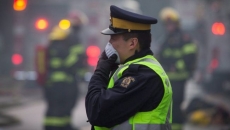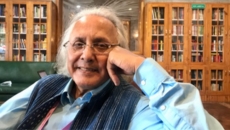Certain cellphone plans in Western Canada are not as cheap as they were prior to the Rogers-Shaw merger, Canada's competition watchdog says.
Jeanne Pratt, the Competition Bureau's senior deputy commissioner of mergers and monopolistic practices, told MPs on Monday that before Shaw was purchased by Rogers Communications last April, the company was "a particularly growing and disruptive competitive force" in B.C. and Alberta.
"They offered very aggressive pricing for bundled wireless plans," she said.
"So far, we haven't seen any information that would suggest that Rogers is offering comparable pricing to Shaw Mobile post-transaction, so that is of a concern."
Pratt was testifying at the House of Commons' industry committee along with representatives from the CRTC, as MPs study the accessibility and affordability of wireless and broadband services in Canada.
Rogers said it wasn't immediately clear which wireless plans Pratt was referring to, but that of the cellphone plans it offers today, both in Western Canada and nationally, none of them are more expensive than prior to the merger with Shaw.
The company said Pratt may have been referring to bundled packages with residential offered to the 500,000 Shaw Mobile customers it absorbed. Rogers said it has committed to price freezes for five years for those customers.
MPs on the committee sounded the alarm in January, when Rogers confirmed prices were going up by an average of $5 for wireless customers not on contract and some Bell Canada customers were also told their wireless bills were set to increase.
The Competition Bureau had opposed Rogers' $26-billion takeover of Shaw, arguing that approving the merger would reduce competition and result in higher cellphone bills, poorer service, and fewer options for consumers.
But the Federal Court of Appeal rejected the Competition Bureau’s bid to quash the deal last year, after the watchdog had hoped the higher court would overturn a previous ruling from the Competition Tribunal in favour of the pact.
Instead, the court sided with the tribunal’s view that “there was no substantial lessening of competition” at risk by approving the deal.
Pratt was asked by Conservative MP Rick Perkins during the committee meeting whether "that reduced competition that you warned about" explains recent cellphone price hikes.
"What I can say is we were definitely concerned about the acquisition and the replacement of Shaw Mobile, who had been a vigorous and effective competitor, who seemed to be driving prices and bundled products down in Western Canada," she said.
"Frankly, the evidence showed that Rogers was the biggest loser in that fight."
Scott Hutton, chief of consumer, research and communications for the CRTC, told the committee that Consumer Price Index data shows telecommunication service prices in Canada have declined 16 per cent in the last year.
But he said that is largely in line with international trends of telecom prices going down. Hutton said many Canadians don't feel their bills are getting lighter and the regulator is "certainly of the opinion that Canadians pay too much for their services."
"Clearly, we need to continue our work, and we will be closely monitoring cellphone service prices to ensure that the recent price increase announced in January does not become a trend," he said.
The committee has invited the chief executives of Rogers, BCE Inc. and Telus Corp. to testify at an upcoming meeting, however a notice of meeting this Wednesday lists other representatives of the Big 3 carriers who are scheduled to appear as witnesses.
NDP MP Brian Masse tabled a motion Monday to summon the three CEOs to appear if that invitation is not accepted.
Rogers, Bell and Telus did not respond to questions about whether their CEOs would attend.






